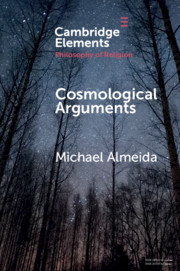One classical version of cosmological argument, defended famously by Thomas Aquinas and Duns Scotus, deduces the existence of a First Cause from the existence of a particular sort of causal series: one that is ‘essentially ordered’. This argument has received renewed defence in recent work by Feser (2013), Cohoe (2013), and Kerr (2015). I agree with these philosophers that the argument is sound. I believe, however, that the standard defence given of the ECA in these philosophers can be complemented by a formulation that appeals to the powers theory of possibility. This approach to possibility has been defended in recent years by, for example, Pruss (2002), Jacobs (2010), and Vetter (2015). In this article, I show how this modal theory allows us to defend the ECA in a way that is dialectically advantageous as well as clarifying.


